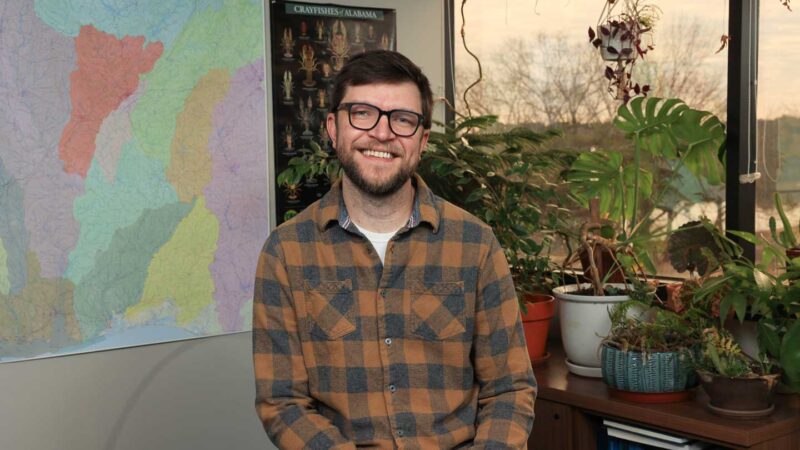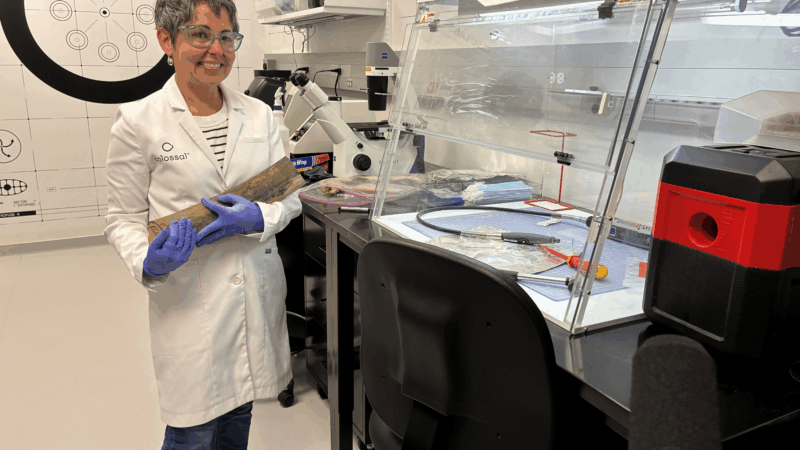Poets Reflect On Six Months Of Pandemic
Sunday marked six months since confirmation of the first case of COVID-19 in Alabama. It is overwhelming to think about all that has changed since then, but several Alabama poets have been have been making sense of the pandemic through their art.
Tina Mozelle Braziel
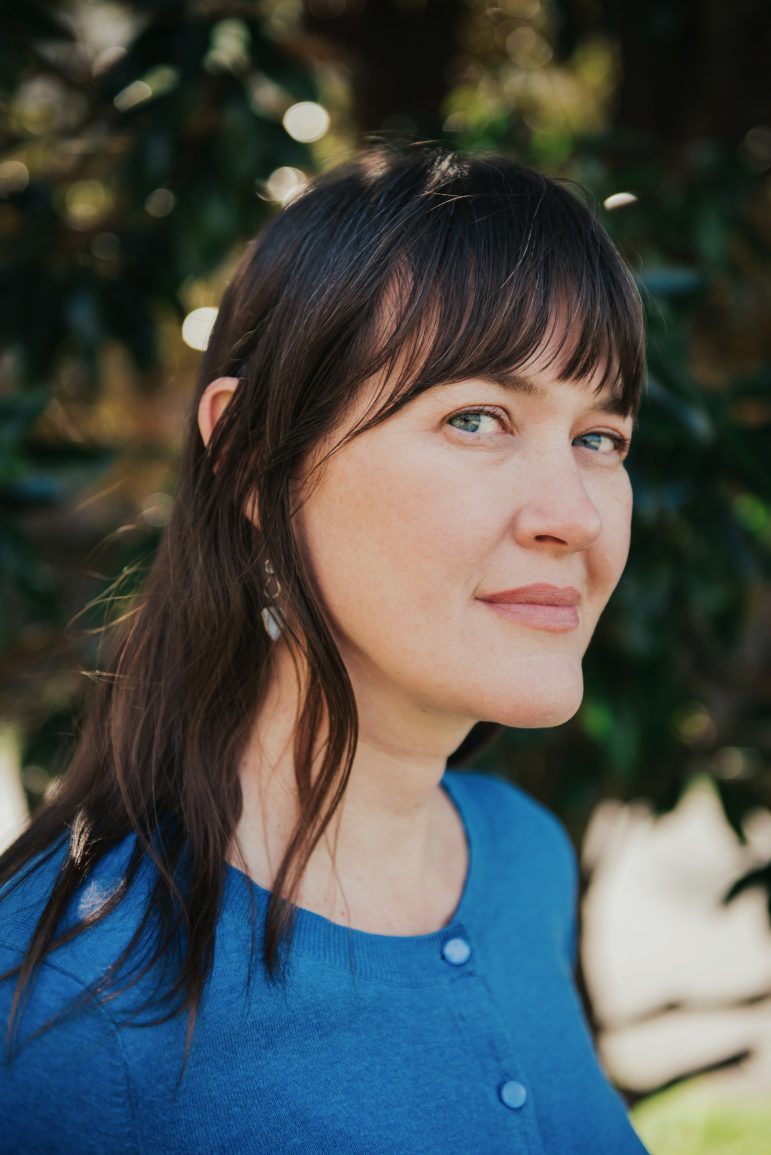
While some people have started new hobbies, Tina Mozelle Braziel stumbled onto an usual one while walking her dog outside her Blount County home back in the spring. She found a puddle with tadpoles and at first she used a watering can to keep the puddle from drying out. Later, she took them home.
“I’ve been raising tadpoles ever since,” Braziel said.
It is a commitment to change the water and feed them every day. Before going to bed, she would checked in on the tadpoles, partly to make sure they did not overrun the deck where she kept them, but also to make sure they were ok. It is an act of caring, a bit reminiscent of healthcare workers tending to the sick.
Braziel also took note of the drumbeat of numbers. Case counts. Deaths. We seem to have become numb to them. Numbers play a role her poem “Drawl and Hum.”
The pandemic is enormous, touching practically everything, yet Braziel says it brings people together in a rare shared experience, even if we are supposed to stay six feet apart.
Alina Stefanescu
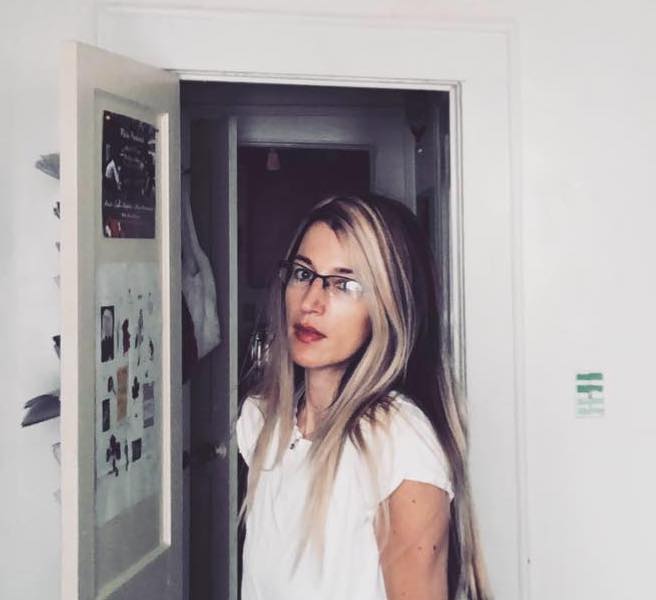
Birmingham poet Alina Stefanescu felt she had to write about the pandemic because the virus came crashing down on her routine. She lost the quiet to craft words with her three kids and husband at home.
“We’re all in this house together and I’m a restless person,” Stefanescu said. “I love to travel. I love to move.”
The house became a cage in a sense, something to escape from. That idea comes through in her poem “Aubade with Caged Animals.” An aubade is a love poem, in this case directed to her husband.
Stefanescu started the pandemic expressing more anxiety and dread. But somehow the focus needed to trudge through the swamp of day-to-day life right now keeps her in the present. It became an antidote to those bigger feelings.
“I look for the small joys and I sort of pull myself out with that,” Stefanescu said. “I chase more butterflies that I would when my life had order.”
W. Roger Carlisle
One Birmingham writers group has already published a collection of pandemic-themed poetry. The men of the Highland Avenue Eaters of Words released “The Social Distance: Poetry in Response to COVID-19” this summer.
“We sort of had a mission as poets to help society grapple with the change,” said poet Roger Carlisle. “We all felt a need to do our part.”
One of Carlisle’s contribution to the anthology is a poem called “Remembering Papi in the Time of COVID 19.” In the early days of the pandemic, he was struck by video of piles of coffins in northern Italy. Doctors realized that the virus was spreading through hospitals, so family could not visit people dying within those walls. Carlisle took that idea and merged it with his own memories of being six years old when his grandfather died. He remembers feelings confused, disconnected and scared.
Carlisle, a “semi-retired physician”, found himself conflicted between his oath to help others and his own fears of contracting the virus and dying. But as the weeks passed and the U.S. largely escaped what Italy experienced, there is less terror.
“My current poems are more about some hope for the future and where we’re going to go,” Carlisle said.
Hank Lazer
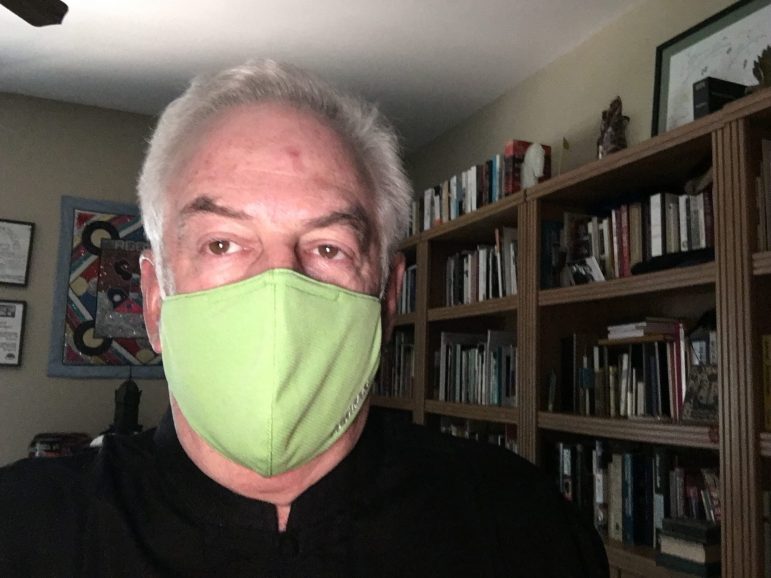
Tuscaloosa poet Hank Lazer has also published a collection of pandemic poetry. The Buddhist influence is clear from the title, “COVID-19 Sutras.” Lazer described this time as one of great beauty and terrible peril.
“[The] difficulty is seeing and feeling that, keeping it in balance, and taking care of one’s self and being a part of this moment and this world,” Lazer said.
For Lazer, it is not just about the pandemic. He says there are two viruses: COVID-19 and systemic racism, the second laid bare by the police killing of George Floyd in Minnesota in May. Those ideas intertwine through his book.
Lazer said poetry is often thought of as being internally focused and centered around the writer’s feelings. But if a poem can be connected to the world around us, its brief lines can offer healing. That comfort will be needed beyond these first six months.
Iranian civilians are now fleeing the relentless bombing for neighboring Turkey
As the U.S. military broadens its strikes in Iran, traumatized Iranians are reaching the border with Turkey.
A split Senate votes against measure to constrain Trump’s authorities in Iran
Democrats in the Senate were facing an uphill climb Wednesday in their push to restrain President Trump's ability to wage war against Iran.
WATCH: How traffic dried up in the Strait of Hormuz since the Iran war began
The effective closure of the Strait of Hormuz is "about as wrong as things could go" for global oil markets. Iran achieved it not with a naval blockade, but with cheap drones.
As Mississippi waits to spend opioid settlement funds, children and families suffer
Mississippi will receive more than $400M to fight the opioid epidemic. So far, officials haven't directed it toward programs that support addiction recovery.
Alabama’s new state climatologist takes the reins
The controversial John Christy is retiring as Alabama’s state climatologist. Lee Ellenburg now assumes the role and is already making a few changes, including declaring that climate change is real and caused by humans.
Colossal Biosciences breeds controversy while trying to revive mammoths
A Texas biotech company is trying to bring mammoths and other extinct creatures back to life. The science is as intriguing as the ethical questions are thorny.



